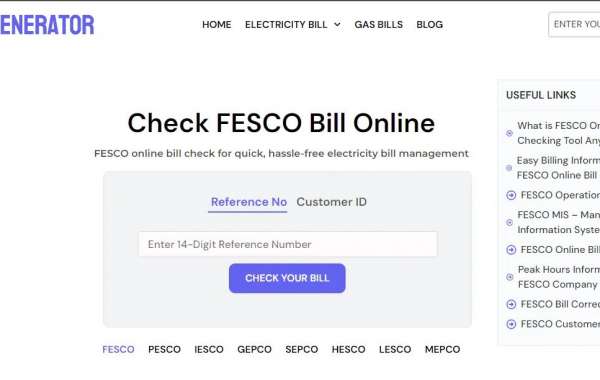Understanding your electricity bill can be a daunting task, with various components contributing to the final amount you pay. In Pakistan, the Faisalabad Electric Supply Company (FESCO) is responsible for distributing electricity to a significant portion of the country. To make informed decisions about your energy consumption and expenses, it's crucial to dissect the FESCO bill and comprehend the various components that constitute your electricity charges.
Metered Units and Tariffs:
The most fundamental aspect of your FESCO bill is the metered units of electricity you consume. Your meter measures the amount of electricity in kilowatt-hours (kWh) that you use during a billing cycle. The tariff structure, set by the regulatory authorities, determines the cost per unit of electricity based on various factors such as consumer category, usage slab, and time of day.
Service Charges:
Service charges are a fixed amount that consumers must pay regardless of their electricity consumption. This fee contributes to covering the costs associated with providing and maintaining the infrastructure required for electricity distribution, including the maintenance of power lines, transformers, and other equipment.
General Sales Tax (GST) and Withholding Tax:
The FESCO online bill includes taxes imposed by the government, such as the General Sales Tax (GST) and Withholding Tax. The GST is a percentage-based tax applied to the total bill, while the Withholding Tax is a deduction made by FESCO on behalf of the government.
Fuel Adjustment Surcharge:
The Fuel Adjustment Surcharge (FAS) is a component that accounts for changes in the cost of fuel used in power generation. It reflects the fluctuating prices of fuel sources like oil and gas. If the cost of fuel increases, the FAS will rise, affecting the overall electricity charges.
Neelum-Jhelum Surcharge:
The Neelum-Jhelum Surcharge is specific to FESCO and is designed to recover the costs associated with the Neelum-Jhelum Hydropower Project. This surcharge is applied to the total bill and contributes to repaying loans and covering other expenses related to the construction and operation of the power project.
Tariff Differential Subsidy:
For certain consumer categories, especially in the agricultural sector, the government may provide subsidies to reduce the financial burden. The Tariff Differential Subsidy is aimed at making electricity more affordable for specific groups, and the amount varies depending on the consumer category and government policies.
Conclusion:
Navigating your FESCO bill becomes more manageable when you understand the breakdown of its components. By being aware of the various charges, taxes, and surcharges, consumers can make informed decisions about their energy usage and expenses. Additionally, staying informed about government policies and potential changes in tariff structures can help individuals and businesses plan for future electricity costs. As Pakistan continues to address its energy challenges, being knowledgeable about your electricity bill is a crucial step towards building a more sustainable and cost-effective energy future.








